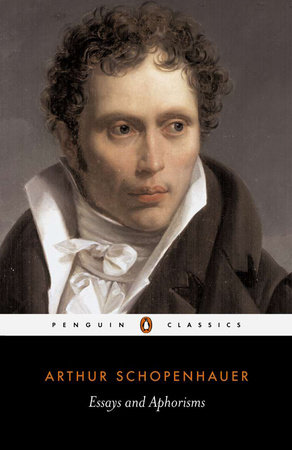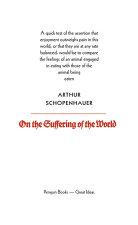Essays and Aphorisms

This selection of thoughts on religion, ethics, politics, women, suicide, books, and much more is taken from Schopenhauer's last work, Parerga and Paralipo-mena, published in 1851.
For more than seventy years, Penguin has been the leading publisher of classic literature in the English-speaking world. With more than 1,700 titles, Penguin Classics represents a global bookshelf of the best works throughout history and across genres and disciplines. Readers trust the series to provide authoritative texts enhanced by introductions and notes by distinguished scholars and contemporary authors, as well as up-to-date translations by award-winning translators.
Arthur Schopenauer was born in Danzig in 1788, where his family, of Dutch origin, owned one of the most respected trading houses. In 1793 the business moved to Hamburg, and in 1805 Arthur, who was expected to inherit it, was apprenticed as a clerk to another Hamburg house. He hated the work, so in 1807, two years after his father’s suicide and the sale of the business, he enrolled at the grammar school at Gotha. In 1809 he entered Göttingen University to study medicine and science; the following year he took up philosophy. In 1811 he transferred to Berlin to write his doctoral thesis (1813). During the next four years he lived in Dresden and wrote The World as Will…

